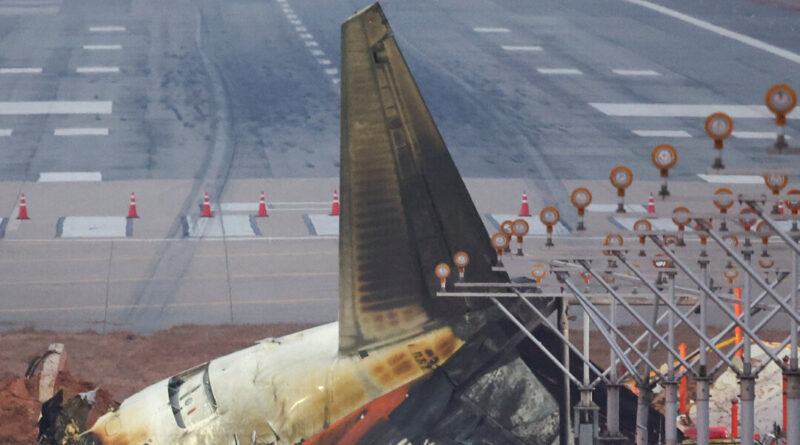South Korean Transport Minister Plans to Resign Following Jeju Air Crash
Park Sang-woo expressed to reporters his sense of ‘heavy responsibility’ for the tragic incident that took place at Muan Airport last month.
The transport minister of South Korea announced on Tuesday his decision to resign from his position following the fatal plane crash at Muan International Airport in December.
The incident involved Jeju Air 7C2216, which departed from Bangkok, Thailand, heading for Muan in South Korea on Dec. 29, 2024. The plane belly-landed, overshot the runway, and crashed, resulting in the deaths of 179 passengers aboard the Boeing 737.
Park Sang-woo, the minister of Land, Infrastructure, and Transport, admitted his responsibility for the disaster during a press briefing, stating that he will step down at an appropriate time after addressing the current circumstances.
The transport ministry also pledged to swiftly enhance the safety of airport landing systems, which experts believe played a role in the crash.
Flight safety experts pointed out that the embankment near the runway, designed to support the “localizer” antenna for assisting pilots during poor visibility, was too rigid and positioned too close to the end of the runway.
Deputy Transport Minister Joo Jong-wan acknowledged deficiencies in safety measures during the construction of the embankment but noted they complied with Korean regulations and international standards.
The police are currently investigating the construction of the embankment, following searches of Jeju Air’s offices and Muan International Airport operator’s premises last week as part of the crash inquiry.
Lead investigator Lee Seung-yeol revealed that feathers were found on one of the recovered engines, suggesting a bird strike. Footage also indicated that one of the engines experienced a bird strike, indicating that birds were sucked into the engine.
Two Korean investigators have departed for the United States to retrieve and analyze the damaged flight data recorder, known as the black box, with the help of the U.S. National Transportation Safety Board.
This black box, along with the cockpit voice recorder, contains crucial information about the events leading to the crash and the crash itself.
Lee mentioned that extracting data from the black box would take three days, followed by two additional days of preliminary analysis to determine if one or both engines failed.
The reason behind the plane’s failure to deploy its landing gear and the pilot’s decision to attempt a second landing after declaring an emergency remain unclear.
According to experts, bird strikes typically do not cause landing gear malfunctions.
Investigators have compiled the full transcript from the cockpit voice recorder found at the crash site but have not yet decided whether to release it to the public.
Muan International Airport, originally scheduled to reopen on Tuesday, will remain closed until Jan. 14 due to the ongoing crash investigation.
The transport ministry has conducted inspections on all 101 Boeing 737-800s operated by South Korea’s airlines as part of the investigation into the country’s worst aviation disaster.
Engine examinations, maintenance records, and landing gear inspections have been carried out on all these aircraft, with the possibility of airlines facing suspension if serious violations are detected.
Investigators are also examining data from 107 cell phones recovered from the crash site, including text messages, to gather information on the events leading up to the crash, as reported by South Korea’s Yonhap News Agency.
Reuters contributed to this report.





